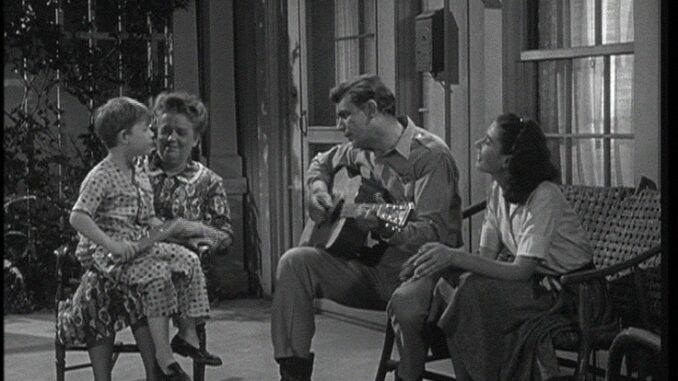
The gentle strumming of a guitar and the cheerful whistle that opened "The Andy Griffith Show" promised a world of simplicity and warmth. Mayberry, North Carolina, was more than just a fictional town; it was a societal blueprint, an idealized vision of community forged not by strict rules or grand confrontations, but by quiet wisdom and a profound understanding of human nature. At the heart of this enduring idyll was Sheriff Andy Taylor, whose most profound lesson wasn't about enforcing the law with a heavy hand, but about the understated, often counter-intuitive, power of walking away.
In a world increasingly driven by escalation, immediate gratification, and the compulsion to "win" every argument, Andy Griffith, through his iconic portrayal, offered a masterclass in strategic retreat. His "walking away" wasn't an act of surrender or apathy, but a deliberate choice to de-escalate, to allow space for reason, or simply to let minor absurdities dissipate on their own. Consider the perennial whirlwind of Barney Fife’s overzealousness. Barney, with his single bullet and penchant for panicking, was a constant source of well-intentioned chaos. Any other sheriff might have been driven to exasperation, constantly correcting, constantly confronting. But Andy rarely did. He’d often respond to Barney’s latest pronouncement or flailing with a slow smile, a gentle nod, or perhaps a turn to Opie with a knowing wink. He would let Barney exhaust his theatrics, giving him the rope to hang his own folly, then gently, almost imperceptibly, guide him back to sanity. This was a metaphorical walking away from the need to be right, from the impulse to immediately squash every misstep. By giving Barney space, Andy preserved their friendship and allowed Barney to learn, often through his own (harmless) mistakes.
Beyond internal Mayberry squabbles, Andy’s walking away extended to his very philosophy of justice. He understood that the letter of the law didn’t always serve the spirit of community. When moonshiners like the Darlings made their infrequent appearances, Andy rarely resorted to arrests or harsh punishments. Instead, he’d "walk away" from strict enforcement, often opting for a quiet warning, a gentle redirection, or even a folksy philosophical exchange that left all parties with their dignity intact and the peace of Mayberry undisturbed. He understood that a man’s reputation, his standing in the community, was often more important than a minor infraction, and that sometimes, a stern glance or a friendly conversation could be more effective than a jail cell. This wasn’t weakness; it was an incredibly shrewd application of emotional intelligence, prioritizing long-term harmony over short-term legal rectitude.
Perhaps the most potent examples of Andy’s power of walking away lay in his interactions with Opie. Whether it was Opie’s attempts to cheat in a fishing derby, or his struggles with truth-telling, Andy never resorted to shouting or immediate punishment. He’d often walk away from the immediate confrontation, allowing Opie time to reflect, to feel the weight of his conscience. Later, over a quiet dinner or a fishing trip, Andy would gently guide Opie towards understanding, delivering his lessons with a calm clarity that resonated far more deeply than any outburst could have. This act of stepping back, of trusting the innate goodness within his son, allowed Opie to internalize moral lessons rather than simply obey external authority. It was a profound act of patience and faith in the process of growth.
In today's hyper-connected, confrontational world, where every perceived slight demands a response and every opinion becomes a battleground, Andy Taylor's quiet wisdom shines even brighter. The ability to walk away from a petty argument, to let a minor injustice slide for the sake of greater peace, to prioritize understanding over immediate victory, is a skill that feels increasingly lost. The Andy Griffith Show taught us that true strength isn't about always standing your ground, but knowing when to yield; not about always having the last word, but about recognizing when silence speaks volumes; and not about conquering opponents, but about building and preserving the very fabric of human connection. Andy Griffith showed us that sometimes, the most powerful thing you can do, for yourself and for your community, is to simply turn and walk away, leaving space for calm, for reflection, and for the quiet, enduring power of common sense.
